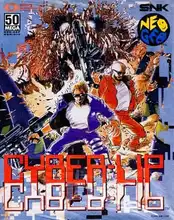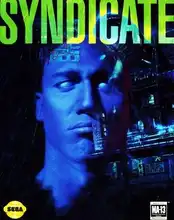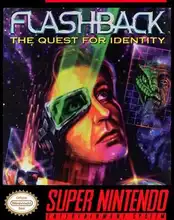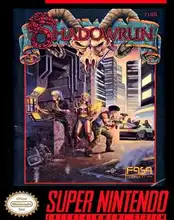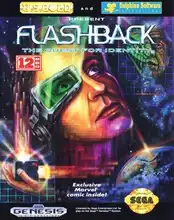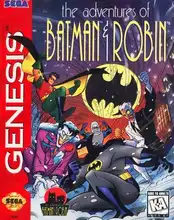Remember those late nights hunched over a glowing CRT monitor, navigating rain-slicked, neon-drenched streets or sterile, oppressive corporate labs? There's a special kind of atmosphere that only the intersection of cyberpunk and dark sci-fi can create in video games. It's not just about chrome limbs and trench coats; it's the pervasive sense of dread, the crushing weight of corporate control, and the unsettling questions about humanity in a technologically saturated future. We're talking about Cyberpunk Dark Sci-Fi games – titles that blend high tech with decidedly low life, often dipping a toe (or a whole cybernetic leg) into horror or intense psychological tension.
This isn't your optimistic space opera. This is the grime, the shadows, the feeling that technology is less a savior and more a cage lined with blinking lights. Let's jack in and explore some classics and contemporaries that nail this specific, deliciously bleak vibe, bringing back memories of pixelated dystopias and challenging our notions of the future.
What Makes a Game "Cyberpunk Dark Sci-Fi"?
The core of cyberpunk, famously summarized as "high tech, low life," sets the stage. You've got incredible technological advancement – cybernetics, AI, sprawling digital networks – but it's layered over societal decay, vast inequality, and corporate behemoths wielding unchecked power. The "dark sci-fi" part amplifies the gloom. It leans into dystopian themes, often incorporating elements of psychological horror, body horror (think transhumanism gone wrong), intense paranoia, or a pervasive sense of hopelessness.
Forget gleaming utopias. These games plunge you into worlds where the future is less a promise and more a warning. They explore themes like:
- Corporate Dystopia: Megacorporations replacing governments, controlling every aspect of life.
- Loss of Humanity: The blurring lines between human and machine, and the psychological toll of augmentation.
- Gritty Urban Decay: Overcrowded, polluted cities where the poor live in the shadow of glittering towers.
- Paranoia and Conspiracy: Trust is a luxury, and hidden forces pull the strings.
- Existential Dread: Questioning reality, identity, and the future of the species.
It's a potent mix, and it's given us some truly unforgettable gaming experiences.
Retro Gems: Classic Dark Cyberpunk/Sci-Fi PC Games
Ah, the 90s and early 2000s. A time when dial-up was king, graphics were... blocky, and these nascent digital worlds felt vast and mysterious. This era gave birth to some foundational retro PC games that still hold a special place in our nostalgic hearts.
Blade Runner (1997)
Okay, let's start with the obvious one. Westwood's point-and-click adventure wasn't just based on the iconic film; it was set concurrently, telling a side story that captured the atmosphere perfectly. Stepping into the shoes of Ray McCoy, another Blade Runner hunting replicants in rain-soaked Los Angeles felt incredibly immersive. The pixelated grime, the moody jazz score, the tough moral choices – it dripped with dark cyberpunk flavor.
- Why it fits: Captures the film's "high tech, low life" aesthetic, moral ambiguity, and pervasive sense of melancholy and decay.
- Nostalgia Hit: Those character models! The interrogation sequences! Trying to figure out if someone was a replicant based on subtle tells.
- Where to find it: Thankfully, GOG.com brought this classic back from digital purgatory.
Deus Ex (2000)
While the entire series fits the cyberpunk bill, the original Deus Ex is a masterclass in early dark sci-fi world-building. Set in a near-future ravaged by a pandemic and controlled by shadowy organizations, you play as JC Denton, a nano-augmented agent uncovering layers upon layers of conspiracy. The blend of RPG, stealth, and FPS gameplay was revolutionary, but it was the atmosphere – the oppressive streets of Battery Park, the creepy Area 51 labs, the sheer paranoia – that cemented its dark sci-fi status.
- Why it fits: Deep dive into conspiracy, transhumanism, corporate control, and societal collapse. Morally grey choices abound.
- Nostalgia Hit: The sheer freedom of approach, the iconic theme music, the clunky but lovable inventory. "What a shame."
- Where to find it: Available on GOG and Steam. A must-play classic.
Dark Seed (1992)
Okay, maybe less "cyberpunk" in the traditional sense, but Dark Seed deserves a mention for its sheer dark sci-fi horror vibe, heavily influenced by H.R. Giger (the artist behind the Alien creature). Playing as Mike Dawson, who buys an old house and gets implanted with an alien embryo from a parallel dimension, is a trip. The game's visuals, using Giger's biomechanical nightmares, create an intensely disturbing atmosphere that fits the "dark" part of our theme perfectly, exploring alien invasion and alternate realities in a deeply unsettling way.
- Why it fits: Intense, disturbing sci-fi horror visuals and themes of alien invasion and alternate dimensions, courtesy of H.R. Giger.
- Nostalgia Hit: Those bizarre, unsettling Giger landscapes. The trial-and-error puzzles that drove you mad.
- Where to find it: Can be tricky to run, but often found on sites like Archive.org or via fan patches for DOSBox.
Creature Shock (1994)
This one might be a deeper cut, but Creature Shock brought space horror to the PC with a distinct mid-90s FMV flair. Stuck on a spaceship overrun by mutated crew and weird aliens, you had a mix of exploration, puzzles, and first-person shooting. While perhaps clunky by today's standards, the atmosphere of isolation, the grotesque creature designs, and the narrative of a deadly virus and mysterious entity felt genuinely dark and sci-fi for its time.
- Why it fits: Space horror, biological mutation, isolation, and a mysterious, dangerous alien presence.
- Nostalgia Hit: Pre-rendered graphics and FMV cutscenes felt cutting-edge back then! The challenge of managing resources against weird 3D monsters.
- Where to find it: Another one that requires some DOSBox tinkering, often found on abandonware sites.
Modern Torchbearers: Newer Games Keeping the Flame Alive
The spirit of dark cyberpunk sci-fi didn't die with the turn of the millennium. Modern developers have picked up the baton, leveraging new technology to create even more immersive and unsettling futures.
Observer (2017)
Starring Rutger Hauer (a perfect casting choice given his Blade Runner legacy), Observer is a psychological horror game set in a 2084 Polish city. You play as a neural detective who can hack into people's minds, experiencing their deepest fears and memories. It's less action, more atmosphere and mystery, diving deep into themes of identity, memory, corporate control, and transhumanism in a truly dark, claustrophobic setting.
- Why it fits: Psychological horror meets cyberpunk dystopia, focusing on the dark side of technology and mind manipulation.
- Modern Grit: Stunning visuals and sound design create an incredibly oppressive atmosphere.
The Ascent (2021)
An Action-RPG with a top-down view, The Ascent throws you into a stunningly rendered cyberpunk world controlled by a massive corporation that suddenly collapses. What follows is a chaotic power vacuum filled with rival gangs, corporations, and creatures. While action-heavy, its visual style, gritty atmosphere, and themes of corporate dependency and the struggle of the average person in a high-tech jungle make it a strong fit for the dark sci-fi aesthetic.
- Why it fits: Visually rich cyberpunk world, corporate collapse narrative, gritty atmosphere, focus on the "low life" struggle.
Cyberpunk 2077 (2020)
Despite its launch woes, Cyberpunk 2077 is perhaps the most prominent recent example. Night City is the epitome of a high-tech, low-life world. While it has its brighter moments, the core narrative, the pervasive crime, the body horror of excessive augmentation, and the difficult moral choices ground it firmly in dark sci-fi themes. Exploring its alleys, encountering its desperate inhabitants, and navigating its corporate politics delivers that signature gritty feeling.
- Why it fits: The quintessential "high tech, low life" setting, exploration of transhumanism, corporate power, and dark narrative paths.
Why We Love the Grime
Perhaps it's the contrast between the shiny tech and the messy reality. Maybe it's the cautionary tales about where unchecked progress could lead. For those of us who grew up plugging in floppy disks and navigating these early digital nightmares, there's a deep-seated appreciation for the atmosphere, the challenging themes, and the unique blend of genres. These Cyberpunk Dark Sci-Fi games, both old and new, offer worlds that are terrifyingly plausible and endlessly fascinating.
FAQ
Q: What defines a game as "dark sci-fi"? A: Dark sci-fi typically explores pessimistic or cynical themes within a science fiction setting. This includes dystopias, societal collapse, body horror, psychological distress from technology, unchecked corporate or governmental power, and a general sense of dread or hopelessness about the future.
Q: Are all cyberpunk games dark sci-fi? A: Not necessarily, but there's significant overlap. The core "high tech, low life" tenet of cyberpunk often lends itself to dark themes like inequality, corporate control, and urban decay. However, some cyberpunk stories might focus more on action, style, or lighter elements. The games discussed here specifically lean into the darker aspects.
Q: Where can I play some of the older retro games mentioned? A: Many classic PC games are available digitally on platforms like GOG.com, which ensures compatibility with modern systems. For others, you might need to use emulators like DOSBox or explore resources like Archive.org, though getting them running can sometimes require a bit of technical know-how.
Q: What's the appeal of these bleak futures? A: For many, it's the compelling atmosphere, the thought-provoking themes, and the way these games hold a mirror to potential societal issues. They offer a unique blend of action, exploration, and narrative depth that sticks with you long after you've logged off.
So, there you have it – a look into the grimy, high-tech underbelly of Cyberpunk Dark Sci-Fi games. Whether you're revisiting a classic or exploring a modern take, these worlds offer a potent dose of dystopian atmosphere. What are your favorite dark sci-fi dives? Share your memories and recommendations in the comments below!

